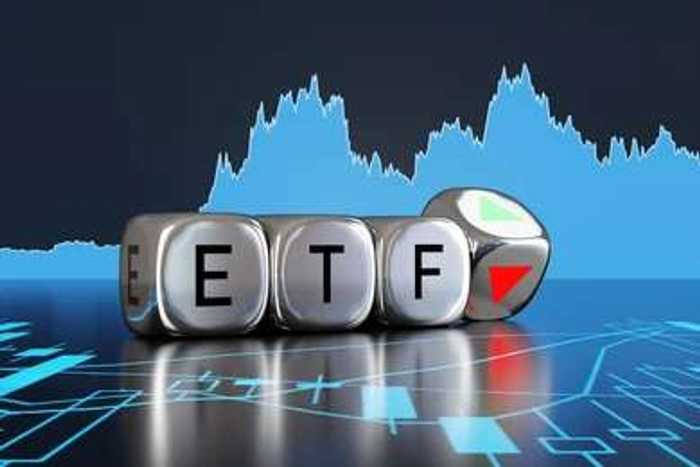Published 18:08 IST, January 6th 2024
Evaluating ETFs: Top picks and considerations for smart investors
ETFs trade on stock exchanges throughout the day, offering flexibility like individual stocks, with diverse types including Index ETFs and Fixed Income ETFs.
- Republic Business
- 4 min read
Investing in ETFs: As the financial markets continue to evolve, Exchange-Traded Funds (ETFs) have emerged as a popular investment option, combining the diversification benefits of mutual funds with the ease of trading stocks. Experts illuminate the top ETF picks, exploring both the gains and potential challenges associated with this investment.
ETFs: A fusion of mutual funds and stocks
ETFs, or Exchange-Traded Funds, represent a collection of investments such as stocks or bonds. Unlike traditional mutual funds, ETFs can be traded throughout the day on stock exchanges, offering investors flexibility. Providers build baskets of assets, each with its own ticker, allowing investors to buy shares in the same way they would acquire stocks. The types of ETFs vary, from Index ETFs that track specific indices to Fixed Income ETFs, which provide exposure to various bond types.
Top ETF picks for 2024
Groww's top ETF picks for 2024, supported by expert recommendations, exemplify a range of index-tracking strategies in dynamic financial markets. Several Index Exchange-Traded Funds (ETFs) have gained attention for their respective approaches. The Motilal Oswal NASDAQ 100 ETF aims to replicate the NASDAQ 100 Index's performance with minimal tracking errors. Similarly, the HDFC Sensex ETF is designed to closely correspond to the total returns of the S&P BSE SENSEX Index. The SBI ETF Sensex follows suit by aligning its returns with the BSE Sensex's total returns. The Edelweiss ETF - NQ30 seeks to provide returns closely mirroring the Nifty 100 Quality 30 Index, acknowledging potential tracking errors. Lastly, the UTI Sensex ETF aims to deliver returns closely corresponding to the total returns of the securities represented by the underlying index, taking into account tracking errors.

Unlocking ETF gains
Investing in Exchange-Traded Funds (ETFs) presents several advantages for investors. “One notable benefit is the instant exposure to a diversified set of assets, which effectively helps mitigate overall portfolio risk by incorporating a broad market approach. Cost efficiency is another key highlight, as ETFs feature lower expense ratios compared to actively managed mutual funds, contributing to enhanced long-term returns. Transparency is a core principle of ETFs, with most disclosing their holdings daily, empowering investors to make well-informed decisions based on a clear understanding of the fund's assets,” said Aastha Gupta, CEO, Share India FinCap . Additionally, the liquidity of ETFs is noteworthy, as they are actively traded on stock exchanges, providing investors with the flexibility of convenient buying and selling throughout the trading day. Lastly, potential tax advantages resulting from in-kind creation and redemption processes are a notable benefit, aiding in minimising capital gains distributions and enhancing overall tax efficiency for investors.
ETF risk realities
Investing in Exchange-Traded Funds (ETFs) comes with certain risks that require careful consideration by investors. “Firstly, the passive tracking of an index may limit significant outperformance over the long term, potentially affecting returns for investors seeking substantial gains. Additionally, ETF values can experience short-term price fluctuations throughout the day, introducing an element of increased short-term volatility that investors need to be aware of. Another risk involves tracking discrepancies, where some ETFs may not precisely mirror their underlying index, resulting in slight performance variances. Lastly, the settlement period for ETF sales may take two days to settle, impacting the timely reinvestment of funds. As with any investment, understanding these risks is crucial for making informed decisions and managing potential challenges in the ETF landscape,” Gupta explained.
Who should invest in ETFs?
ETFs are not a one-size-fits-all solution. While they offer advantages, they may not be suitable for every investor. “New investors seeking long-term equity exposure without selecting specific stocks may find index funds a better option. Choosing the right ETF requires a deep understanding of the financial market, making a hands-on investment style essential,” said Arpit Suri, CA, personal finance expert.
Setting up an online account through a broker or trading platform is the first step for investors looking to delve into the world of ETFs. After funding the account, investors can purchase ETFs using ticker symbols, indicating the desired number of shares. Some brokers even allow the purchase of fractional shares, making ETFs accessible to investors with varying capital levels.
Updated 13:16 IST, January 9th 2024